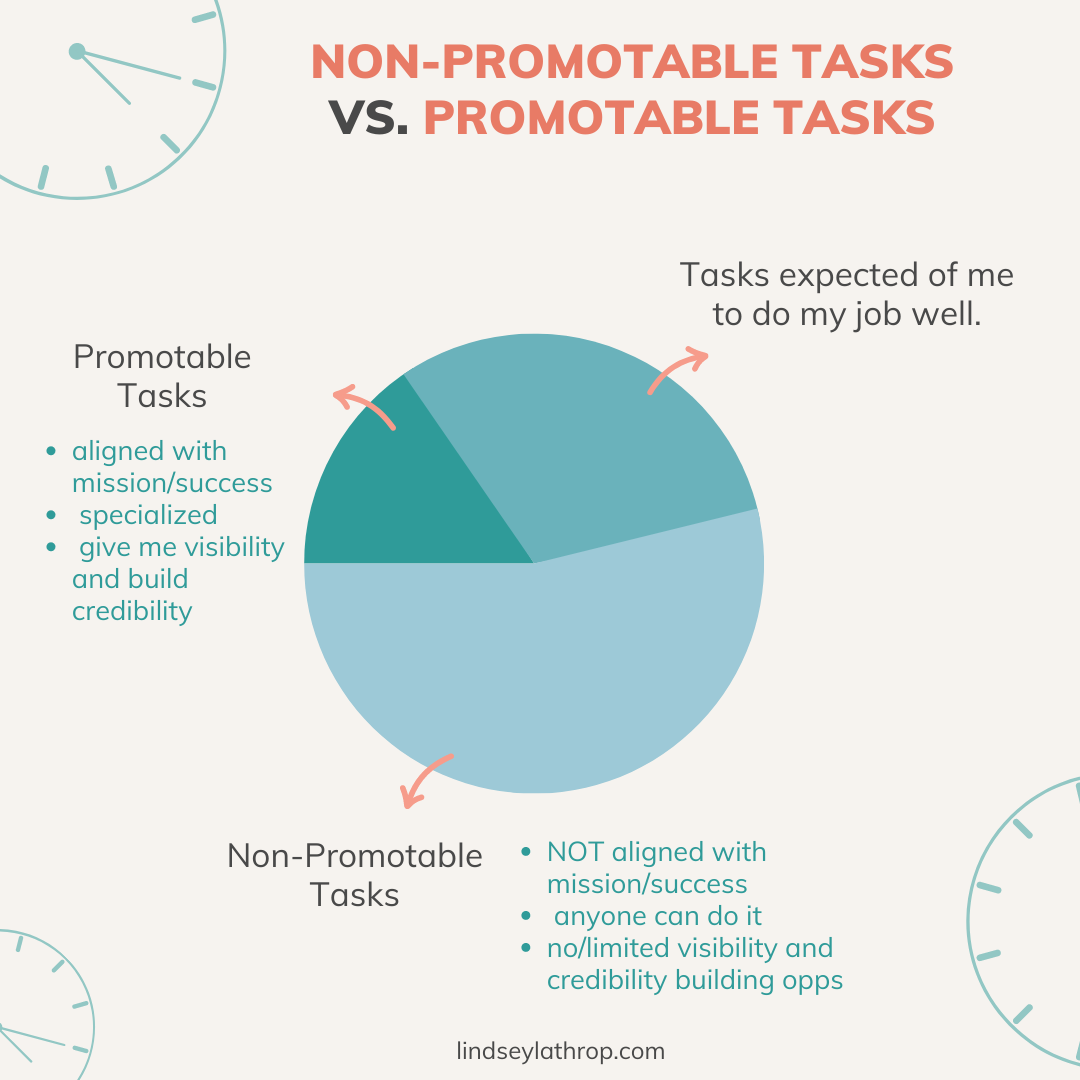Why Office Mom Doesn't Get Promoted
Every now and then I attract an Office Mom as a client. (Their title - not mine.)
They are the first person to jump in to help. They anticipate needs and take care of things without being asked.
She insists “It was really no problem” a lot. Her desk drawer is stocked full of snacks.
They buy the birthday cards and get them signed. Office Mom cleans up after meetings.
She’s thoughtful - and amazing to work with because she makes life easier.
(Who wouldn’t want an Office Mom around?!)
Thing thing is - Office Mom has trained everyone around her that she will be there to save the day, to do extra, to make everyone look good - without anything in return.
And now she’s coming to me because Office Mom wants to change it up. She wants to get promoted. She wants a little credit (and she puts an emphasis on the “little” part). But she recognizes she doesn’t have any work advocates. There is no one encouraging her to move up, go for that new opportunity, and grow.
Who would always be available to them? Where would they get their Monday morning scone?
Office Mom Doesn’t Get Promoted Because of Non-Promotable Tasks (NPTs) - So, What Are They?
Every year, women spend 200 hours per year on these sort of non-promotable tasks (NPTs) - in large part because they’re expected to and are asked more than men.
And like caregiving, these tasks are significantly undervalued - despite benefiting the greater collective. They do very little to help women to advance their careers, make economic gains, and earn decision-making power. Instead, non-promotable tasks can erode these opportunities.
So how often are you doing these tasks?
Three Common Traits of Non-Promotable Tasks
To know how much time you spend on non-promotable tasks, the authors of Harvard Business Review’s post - Are You Taking on Too Many Non-Promotable Tasks? - give three common traits to look out for:
NPTs are not instrumental to your organization’s mission. They don’t align with the organization’s goals and objectives, and way it measures success.
NPTs are often not visible to others (and/or not easily attributed to you).
NPTs may not require specialized skills and many people can do them.
How To Know How Much Time You Spend on Non-Promotable Tasks
The best way to find out how much time you spend on non-promotable tasks is to do a time audit of your workweek. Get started by looking at last week and to get a fuller picture, look at the last three months.
Categorize your time into three buckets:
Tasks expected of me to do my job well.
Promotable tasks: aligned with the mission, are specialized, and give me visibility and build credibility
Non-promotable tasks: NOT aligned with the mission, anyone can do it, and are not that visible to others.
Take note of the themes and patterns you see with how you’re spending your time at work.
Know the Intent Behind Your Non-Promotable Tasks
Am I saying only ever do tasks that are promotable? Absolutely not. If you’re like me, I bet some of your favorite moments during the work week are when you’re in service of others and helping someone have a better day. Those tasks give you joy because you get something positive from them.
That said - you still need to ask yourself what the real intent is behind the non-promotable tasks you are engaging in. Get curious!
Is it because…
… you want to be liked? (As a recovering people-pleaser, it’s almost always this one for me.)
…you feel pressured?
…you’re not clear on whether it’s your job or not?
…no one else is stepping up?
…you’re flattered by being asked?
Don’t Always Say Yes to Non-Promotable Tasks.
If you resonate with one of the reasons above as to why you say “Yes” whenever you’re asked to do a non-promotable task, it may be time to try responding differently. The next time you’re asked, you can take a deep breath and use one of these responses:
“No.”
“I can’t right now.”
“I’m on a hard deadline.”
“I don’t have capacity to take this on.”
“I don’t have time anymore.”
“I’m currently working on X. What takes priority?
“That’s not where I need to be spending time right now.”
“I did it last time. Let’s rotate the responsibility.”
If the request is in an email…what about NOT responding? It may just resolve itself! A guy friend once told me that he automatically deletes first emails without reading them because “if someone really needs something from me, they’ll email again.” 🤯🤯🤯
The bottom line: it’s up to you to re-train people on how you want to be treated. Be ready for grumpy reactions. Remember - you’re the one changing the deal. People are not going to be thrilled because you’ve been making life and work easier for them and they’re going to have to figure out a new plan. If you have career goals and find you’re not making headway, it may be because you’re spending too much time on these low-impact non-promotable tasks. You’re not able to build the kind of career-advancing credibility you need because you don’t have time to.
Make time by reclaiming your time.

